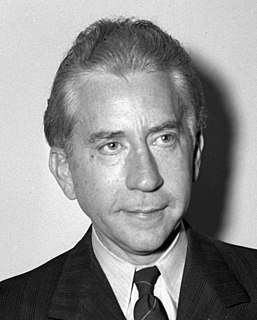A Quote by Joseph Epstein
Envy is never general, but always very particular - at least envy of the kind one feels strongly.
Related Quotes
Envy, envy eats them alive. If you had money, they’d envy you that. But since you don’t, they envy you for having such a good, bright, loving daughter. They envy you for just being a happy man. They envy you for not envying them. One of the greatest sorrows of human existence is that some people aren’t happy merely to be alive but find their happiness only in the misery of others.
Envy is the most universal passion. We only pride ourselves on the qualities we possess, or think we possess; but we envy the pretensions we have, and those which we have not, and do not even wish for. We envy the greatest qualities and every trifling advantage. We envy the most ridiculous appearance or affectation of superiority. We envy folly and conceit; nay, we go so far as to envy whatever confers distinction of notoriety, even vice and infamy.
What is envy? It is nothing but passive jealousy. Maybe jealousy is too strong a phenomenon; envy is a little passive. The difference may be of degrees, but it is not of quality, it is only of quantity. Envy can become jealousy at any moment; envy is just jealousy in progress. Mind has to drop all envies and jealousies.
The word "jealousy" is often used as if it were synonymous with envy; but I think the distinction worth preserving. Jealousy is predominantly concerned with the fear of loss of something one possesses, envy with the wish to own something another possesses. Othello suffers from the fear that he has lost Desdemona's love. Iago suffers from envy of the position held by Cassio, to which he feels entitled.
Love rejoices in good wherever it finds it; envy is pained by good, and the sight of the happiness of others hurts the eyes and the heart of the envious man. Love wishes to give; envy would rather receive. Love creates; envy destroys. Love builds up; envy pulls down. Love helps those in need, comforts the afflicted, and strives to turn all that is evil into good; envy would turn the little happiness to be found in this world into evil, sorrow, and pain.





































